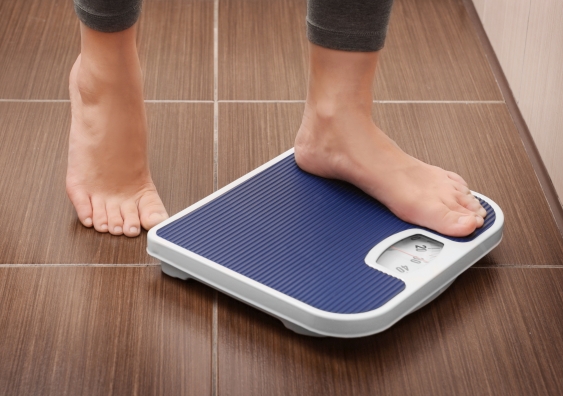The two main strategies for weight loss include eating fewer calories and exercising. However, many women follow these recommendations but still struggle to drop those extra pounds. Certain health and lifestyle considerations may be at fault, with signs so subtle that your doctor may not even recognize them.

These conditions occur frequently with women and may be the cause of weight gain as well as the inability to lose weight. If you’ve struggled with unsuccessful weight loss, you may want to consider these common culprits.
Polycystic Ovary Syndrome
This condition appears in anywhere from one in 10 to one in 20 women of childbearing age. The main problem of PCOS is a hormonal imbalance, where the ovaries are producing more androgens than normal which affects weight status and other body systems. Women who notice weight gain, especially in the waist region, with no apparent change in diet, may have developed this condition. A doctor can test hormone levels to confirm this diagnosis, and may recommend a specific treatment which can help return you to normal and start losing weight. With this condition, lifestyle changes such as cutting out any refined carbohydrates and added sugars as well as taking an insulin- resistance prescription medication can be effective for weight loss.
Low Thyroid Levels
The thyroid is a gland located in the neck that produces hormones responsible for regulating your metabolism. When your thyroid stops producing enough of the thyroid hormone, you begin to feel tired, cold and often gain weight. Women are at a much higher risk for an inactive thyroid, especially after giving birth. Inactive thyroids often prevent weight loss and may go undiagnosed for years since symptoms can occur gradually. A simple blood test can diagnose your thyroid hormone levels to determine if your inability to lose weight is being caused by a sluggish thyroid. If your thyroid is the cause, your doctor can prescribe a synthetic thyroid hormone which will help with weight loss and resolve other related symptoms.
Lack of Sleep
If you don’t get enough sleep, you may have trouble losing weight, even when following a restricted calorie diet and exercising regularly. In a 2006 study published in the “American Journal of Epidemiology,” researchers followed over 60 thousand women for 16 years to determine causes of weight gain. As women slept fewer hours per night, they tended to gain more weight over time, even adjusting for exercise and diet. A lack of sleep lowers levels of the hormone leptin which causes fullness and may be responsible for an inability to achieve and maintain a healthy weight. Women who have made beneficial lifestyle and dietary changes to lose weight should include sleeping as an important component of successful weight loss measures.
Aging and Weight
When a woman reaches a certain age, her body enters menopause as the ovaries stop producing estrogen. Usually occurring in the 50 age range, your metabolism slows down during menopause. The decrease in hormones changes your metabolic needs, even though you may not feel any different. When you reach this stage of life, you may have more difficulty losing weight. Recommended strategies to increase weight loss include decreasing your caloric intake and getting at least two hours and 30 minutes of exercise a week. Although you do need just as many nutrients, menopausal women tend to need fewer calories for energy, so you may have to lower your caloric intake more than expected while also increasing your exercise. Both of these changes may be necessary to see significant weight loss.
